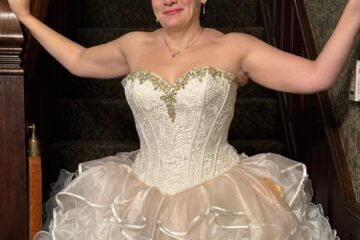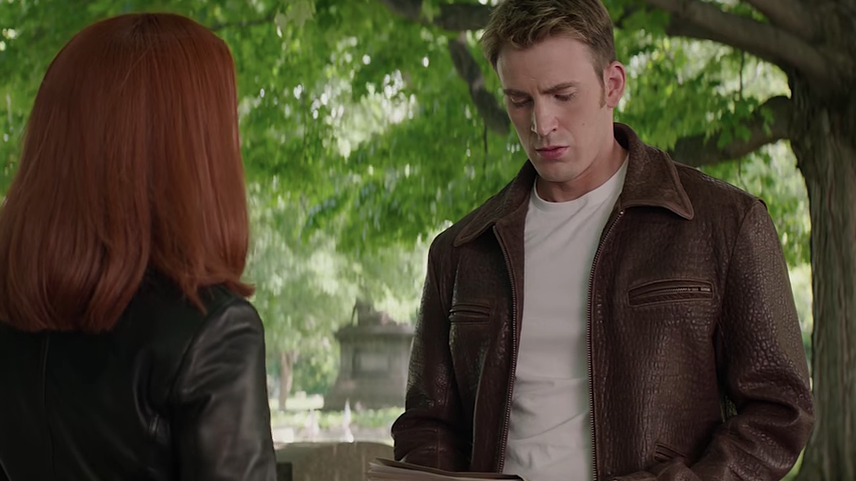I recently volunteered to be a first-round reader at a fiction magazine. A “slush reader.”
I think referring to the mountain of submitted stories as “the slush” started when paper submissions were slipped through the transoms of publishing offices, resulting in a slippery pile of envelopes the employees had to step over in the morning. Don’t quote me on it. Anyway, I’d like to share the startling revelations I’ve had in just one month as a slush reader.
One: DEATH TO WILL ROBINSON
I was shocked how many stories are still being written and submitted that star and center on a mythical white suburban family with a mom who cooks and cleans and a dad who works and one or more adorable, obedient children who never do or say anything not appropriate for a G-rated movie.
It’s not just flat characterization – it’s downright insulting. NO ONE lives like this. No one EVER lived like this. Guiltless rejections. People: Just stop. STAWP. You want verisimilitude in your characters and settings. No one is going to relate to cardboard families. Hell, you can have a mom and dad and a kid, but maybe Mom is a professional bowler and the kid throws rocks at cats and Dad really enjoys mopping. I’m saying give these people quirks and flaws and depth!
Two: Big heads, tiny feet
The most common error I found in stories were heavy, frontloaded stories. ALL the backstory and worldbuilding on the first page, plus the characters and the setting and the problem! Grar. And then… oh, crap I gotta end? One sentence wrap-up, pithy line.
It can feel like plowing into a snow hill to start that story, and like you’ve missed the ending entirely. I got the feeling the writer really wanted to write the beginning, put lots of thought into it, and then had no idea how to end, so when they finally came up with something that sorta worked, they stopped working.
Don’t stop working until your ending is as strong as your beginning. (Also don’t give the reader everything on the first page – save up information until just before we need it.)
Three: DEATH TO EXPLOSIONS
I remember being told that stories needed to “start AFTER the action is in swing,” and if possible to “open with a bang.” I don’t recall who gave me this advice, but they were clearly not magazine editors and also have clearly been spreading their poison far and wide among would-be authors.
So many slush pile stories opened with explosions, firefights, and dangling from cliffs that it got so any hint of action in the first paragraph made me grit my teeth. Fun fact: it’s super hard to care about something happening – even something as big as the Earth Itself Exploding – if you don’t have the context first. The characters. Make me care, THEN make stuff blow up.
Four: Get over yourself in your cover letter.
The longer the cover letters, the more likely the story was going to be bad. And after reading a thousand “I was published in Analog and Clarkesworld and The Saturday Evening Post” – trust me, your list of twelve semi-pro sales is only irritating me. After a whle, nothing registered as noteworthy short of “I won a Hugo RECENTLY.” So – don’t bother unless you have a killer credential. If you do have a killer credential like a recent Hugo, chances are you don’t have to bother either, because your name will be enough.
Good cover letters are one sentence. That sentence is, “I’m sending a story, [name], about [length] words long, thank you for your time.”
Bad cover letters are ANYTHING ELSE.
Never summarize the story. Especially with words like “action-packed” or “thriller” or “something for everyone.”
The worst though were the ones with two paragraphs of information about every story sale they have ever had, their hobbies, their hopes and dreams, their undergraduate thesis topic… there weren’t many this bad, but when I saw a cover letter trying hard to sell its author, I found myself suspecting the writer knew the story wouldn’t sell itself.
Five: Soft what purplish prose gleameth upon the horizon!
Emotional honesty and subtle characterization are what stands out in the slush pile – not florid description or high drama. I mean, I could see having a character who Speaketh Forsoothly or whatever, but… but… oh lawd I just can’t even with the melodrama. So many stories opened with “The dark waves of the brooding sea crashed below the cliffs as Drake Smith pondered if it would be better to dash himself upon those rocks than face this agony before him!” or something. Save it for the climax maybe?
Six: Actually… they aren’t that bad
The biggest shock, though, was how few of the stories were terrible. I’d always heard horror stories from slush readers about the awfulness they had to wade through – and yes, there’s quite a bit of it – but I’d say the awful, anecdote-inspiring stories are probably less than 20%.
Well, yeah – we like to talk about the bad ones. Look how much of this blog post is taken up with the bad ones! But no – the vast majority of stories submitted (to this market anyway) were PERFECTLY COMPETENT.
Yeah, that’s depressing for us would-be story sellers. The hard fact is: The competition is good. Just as good as we are. Often better.
That’s not a reason to give up hope. Ultimately, stories that bubbled up the chain were ones that weren’t the most polished, but had the most emotional impact on me. So go forth, little slushlings, go forth and be raw and real and quirky.


